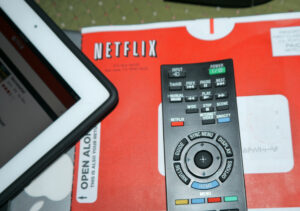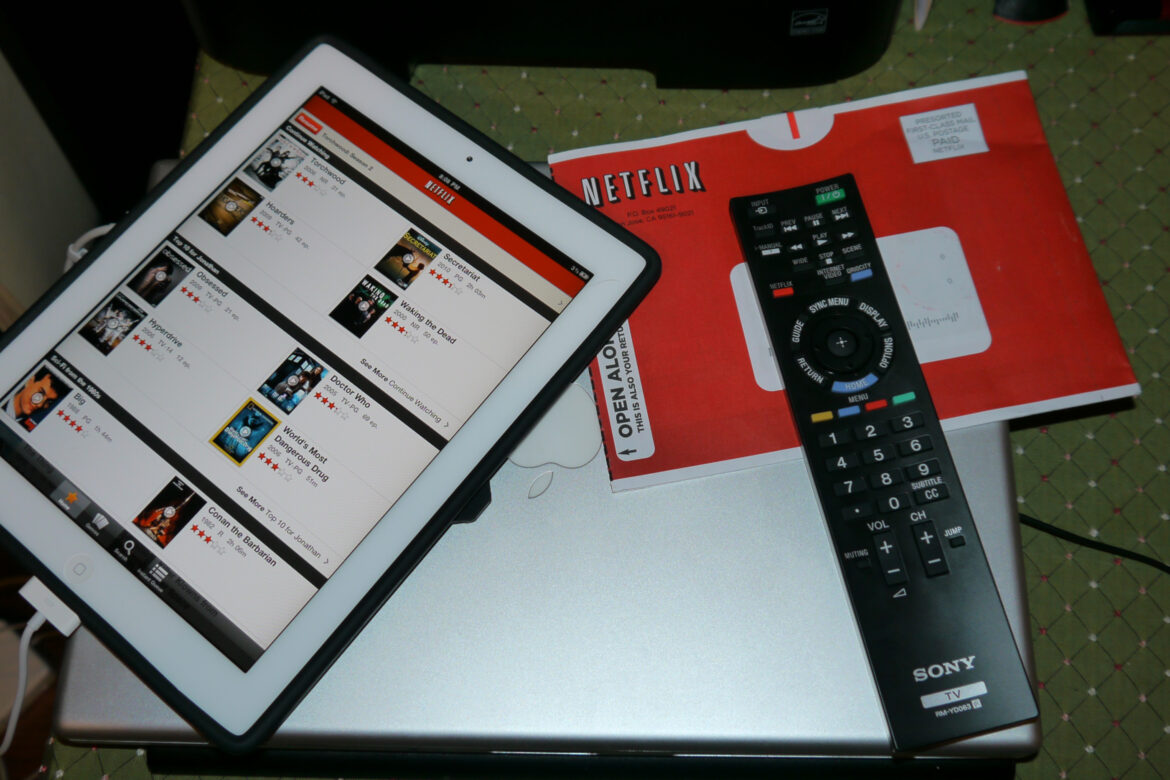 Netflix won’t abandon renting DVDs by mail after all. But the mobile viewing market is about to go to the jungle. What can Netflix do to compete?
Netflix won’t abandon renting DVDs by mail after all. But the mobile viewing market is about to go to the jungle. What can Netflix do to compete?
Today we get another abrupt decision from the once visionary Netflix CEO Reed Hastings. He announced that there would be no Qwikster. Let’s face it, the name Qwikster.com was not cool and lacked the zip that made Netflix an almost Google like part of our popular lexicon. With the rise of other streaming services, to “netflix” has acquired a secondary meaning applicable to anything watched at home via an Internet connection.
This move by Hastings will likely affect his company’s stock price that took a hit after the lame Qwikster announcement in Hastings’ odd rambling email. Certainly, this decision should quell any speculation that Amazon might buy Netflix if it abandoned its DVD-by-mail service. With the Fire tablet about to drop in November, Netflix’ hold on the home streaming market is about to tumble even more. And since Amazon is practically giving away its hardware to hook people on its software/content delivery ecosystem, the mobile viewing market could narrow significantly. Apple has yet to open up its service to anything but a pay as you watch rental and purchase store, and Netflix still does not offer home steaming rentals of new releases.
Netflix has apps for its streaming service in the Apple store and now in the Android market, but a Netflix app has yet to appear in the Amazon Appstore. Many gadget geeks speculate that since the Fire is running a “forked” version of Google’s Android that it is possible that the Netflix app could be installed on the device. And one article on the USA Today website clearly stated that there would be a Netflix app on the Fire tablet. But I can’t understand how offering Netflix (a direct competitor to Amazon’s streaming service) would benefit Amazon. After all, the company is already selling the tablet as a loss leader in fine Walmart fashion. The idea is that Amazon will be the user’s primary connection to the Internet or Amazon’s “non-explicit” version of it via their silky browser. And users that rely on a piece of Amazon hardware will feel a personal connection to the Amazon brand that Netflix may have difficulty reproducing.
But if Amazon does offer a Netflix app, would it be to point up the differences and possible weaknesses in the Netflix universe as compared to the all-encompassing Amazon one? Could offering Netflix on the Fire be a brilliant marketing turn that spells the death knell to its competitors? On the Fire, Netflix could look pretty puny along side of everything that Amazon would be throwing at users. Mr. Hastings take note.
A Netflix mobile device isn’t going to happen, so Hastings has got to figure out how to compete without hardware. And that is why Qwikster did not happen. Regardless whether Netflix retains its grip on the home streaming market as that market expands significantly to mobile devices, Netflix will continue to be the only video store most people can frequent. Since the brick and mortar stores that popped up like weeds in the 1980s through the 1990s have all but disappeared, there is still a healthy business in sending out discs by mail. And Netflix perfected that service–on one level Qwikster was no joke.
But as I said after the Qwikster announcement, Netflix needs to innovate in a way that marries the old time video store experience with new streaming one. And that means that Hastings needs to get to know his customer in a very direct and personal way. An army of film geeks and movie critics could make that direct appeal and help users of streaming services sift through the thousands of options to arrive at the perfect choice on a Friday night.
Right now, the video store might be just one click away, but one click is just the start. Viewers can often spend longer than a movie’s running time clicking through the various streaming databases. And one has to keep notes just to remember what struck their fancy. It becomes heavy lifting. Such an experience can be intimidating and as difficult as finding an app in the clogged and possibly dangerous Android Market. No wonder that new releases are the top renters–they’re just easier to find!
If Hastings really wants to make Netflix special again, he’d rely less on the computer making suggestions for viewers and bring back film critics to his site. Netflix should have its own online magazine. And such a magazine should discuss not only what to watch, but where to watch it. That means an analysis of Amazon’s streaming offerings to point out that you can watch this film on Netflix but not on Amazon. But that might not always be the case; sometimes, the opposite might be true. Either way, Netflix is the winner because people would go to Netflix first for the information and choose Netflix over the others if the title is available on that service. Right now, the automated suggestion service has become stale and so impersonal that it is easily overlooked after a couple months on the service.
Recently, I’ve noticed an uptick of television ads for Netflix. The ads are circa several years ago and show housewives in their kitchens with laptops praising Netflix. Such tired ads are an example of conservative advertising to push the stability of the service even when the brand itself seems to be in flux. A new campaign could focus on how Netflix will help you find something special to watch as well as emphasizing the vastness of its database BOTH online and via DVD-by-mail.
Only new ideas will help Netflix in this uncertain time when people are trading in their big screens for ones that they can hold in the palm of their hand. And because the choices are more numerous than ever before, the winner of the streaming wars might be the one that lifts the veil of confusion and adds sanity to the process of navigating the streaming universe. Video stores hung on as long as they did because of the personal service they offered–a user interface that cannot be easily replicated in the online world. The coldness of the streaming services needs to be thawed. Because while Netflix might have a great database of titles, it needs to spend more time telling us what specific films and shows we should be watching.


